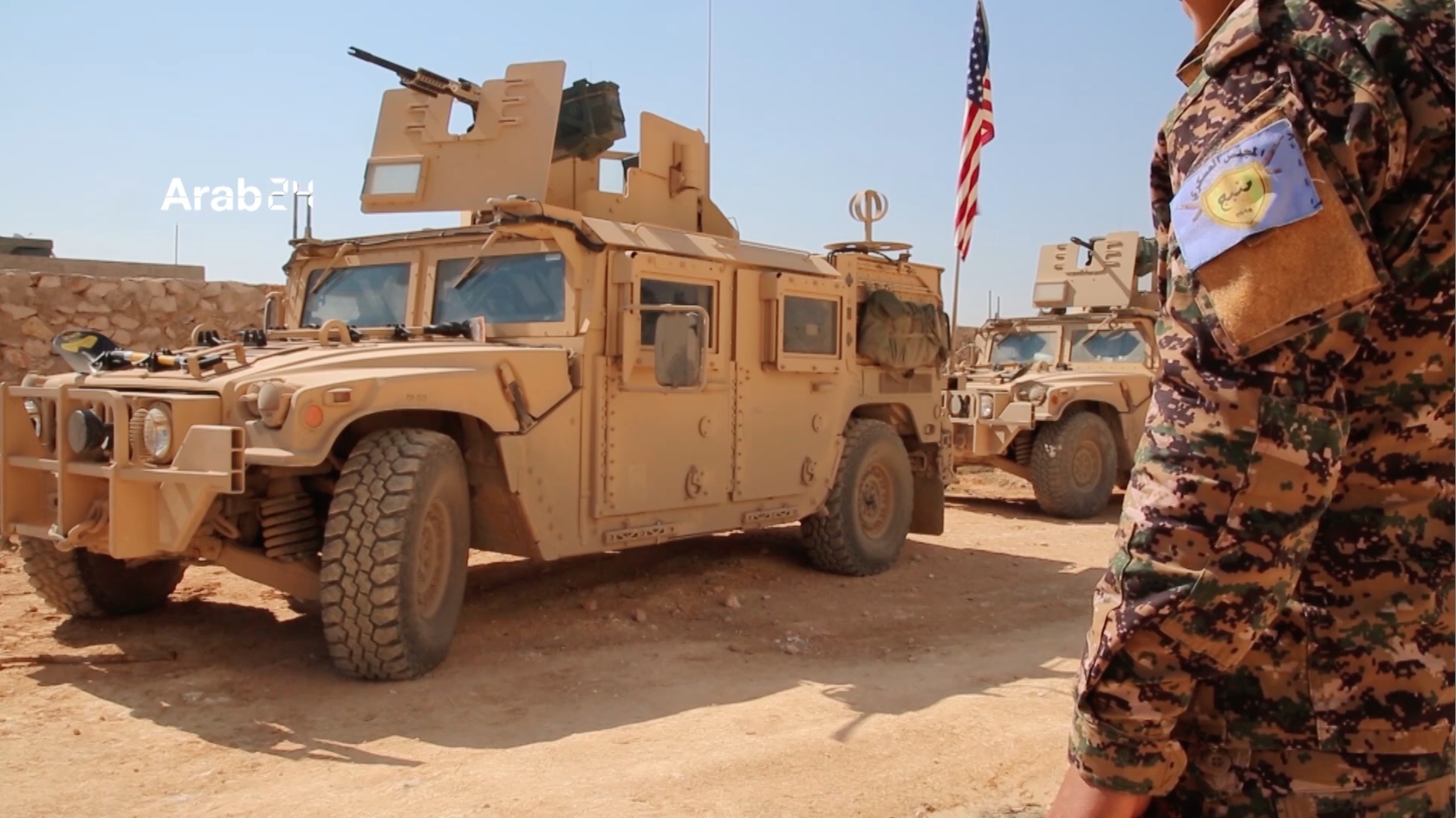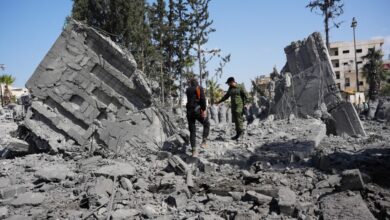US backtracks on Syrian ‘border guard’ plan after Turkish threats to attack Efrin
ERBIL, Iraq – The United States continues to train local security forces linked to the Kurdish-led Syrian Democratic Forces in Syria, but will not create a ‘border guard force’ and understands the concerns of Turkey, the U.S. Department of Defense said in a statement on Wednesday.
The Pentagon statement seems to follow Turkish threats to attack the Kurdish enclave of Efrin in Syria’s Aleppo governorate and the shelling of villages near Efrin.
“The training is designed to enhance security for displaced persons returning to their devastated communities,” the Pentagon said. “It is also essential so that ISIS cannot reemerge in liberated and ungoverned areas. This is not a new “army” or conventional ‘border guard’ force.”
The statement added that the U.S. was “keenly aware of the security concerns of Turkey, our Coalition partner and NATO ally.”
Noting that Turkey’s security concerns are legitimate, the Pentagon said it would continue to be transparent with Ankara about its efforts to defeat ISIS in Syria, “and stand by our NATO ally in its counter-terrorism efforts.”
“The military campaign against ISIS in Syria is not over and heavy fighting is still underway in the Middle Euphrates River Valley,” the Pentagon added, underlining that these forces are ‘internally-focused’ – seemingly a message to Ankara.
“These security forces are internally-focused to prevent ISIS fighters from fleeing Syria and augment local security in liberated areas. These forces will protect the local population and help prevent ISIS from launching new attacks against the U.S. and its allies and partners, pending a longer-term political solution to the Syrian civil war in Geneva,” the statement concluded.
US plans for Syrian border security force prompt Turkish outcry
On Saturday, an official from the U.S.-led Coalition against Islamic State told The Defense Post that it was working with the Syrian Democratic Forces to set up a 30,000 strong Syrian border security force.
“The Coalition is working jointly with the Syrian Democratic Forces (SDF) to establish and train the new Syrian Border Security Force (BSF). Currently, there are approximately 230 individuals training in the BSF’s inaugural class, with the goal of a final force size of approximately 30,000,” CJTF-OIR Public Affairs Officer Colonel Thomas F. Veale told The Defense Post in an exclusive statement last week.
Shortly after, Turkish President Recep Tayyip Erdogan threatened to destroy this force, and reiterated threats to attack Efrin.
“A country we call an ally is insisting on forming a terror army on our borders,” Erdogan said on Monday in a speech in Ankara. “What can that terror army target but Turkey?”
“Our mission is to strangle it before it’s even born.”
Turkey views the predominantly Kurdish YPG and its linked PYD political party as extensions of the Turkish Kurdistan Workers’ Party (PKK), which has fought a decades-long insurgency mainly in Turkey’s majority-Kurdish southwest. The PKK is designated a terrorist group by Turkey, the United States and European Union, among others, but the YPG is not so designated by the U.S. or E.U.
‘The BSF was never real’
“The name “Border Force” triggered a response from Turkey because the Turks took it to mean that the U.S. military was establishing a PKK Army to protect a PKK statelet in Syria,” Nicholas A. Heras, Middle East Security Fellow at the Center for a New American Security told The Defense Post.
“Erdogan interpreted that name to be indicative of a U.S. policy to support the division of Syria in the favor of the PKK,” Heras said.
On Wednesday, U.S. Secretary of State Rex Tillerson denied that there were plans to create a border force.
“That entire situation has been misportrayed, misdescribed. Some people misspoke. We are not creating a border security force at all,” Tillerson told reporters.
“The BSF was never real. It’s the SDF, and the U.S. isn’t leaving. This is about the fact that the U.S. has given the SDF a defacto security guarantee,” Aaron Stein, a senior fellow at the Atlantic Council in Washington D.C. told The Defense Post.
The analyst said Turkish threats to attack Efrin were linked to challenges to the Russian sponsored talks in Astana, and the recent U.S. plans to continue to support the SDF after the end of the Raqqa operation.
“I think the confluence of events prompted Turkey to act on their military plans,” he said.
Tillerson on Wednesday outlined the Trump administration’s new Syria policy, confirming that the U.S. intends to maintain an open-ended military presence in Syria to fight ISIS and al-Qaeda, and to contain Iran.
“We cannot repeat the mistake of 2011,” Tillerson said. “A premature departure from Iraq allowed al-Qaeda in Iraq to survive and eventually become ISIS.”
“Calling the successor to the SDF a ‘Border Security Force’ was probably the most politically tone deaf, accidentally provocative branding choice possible. It looks like U.S. officials realized that, albeit belatedly,” Sam Heller, a Beirut based Syria analyst and fellow at the Century Foundation, told The Defense Post.
He added that this doesn’t change the open-ended U.S. commitment to stay in Syria.
“But sanitizing this name doesn’t change what this force signifies in terms of an open-ended U.S. commitment to northeast Syria and to America’s Kurdish partners on the ground. Beyond the name, that policy substance is still a problem for Turkey, as well as for others like the Syrian regime and Iran,” Heller added.
‘The US should not allow the Turkish attack on Efrin’
Syrian Kurdish leaders warned that the U.S. should not allow Turkey to attack Efrin.
“The United States should not allow the Turkish attack on Efrin for several reasons. Efrin has participated with its sons in all the liberation campaigns in the eastern Euphrates region from ISIS. Arin Mirkan [in Kobani] is the biggest example of this,” Ilham Ahmed, co-president of the Democratic Council of Syria told The Defense Post.
Mirkan, arguably one of the most famous female fighters from Efrin, died fighting ISIS in Kobani in 2014.
Ahmed previously met Coalition officials during the Raqqa campaign that was concluded in October last year.
“Since Turkey is a NATO member, it must be prevented from fighting forces that have fought and are still fighting terrorism. The U.S. has to stand against this attack,” she concluded.
Ali Marwan, 55, a Kurd who lives in Europe but has relatives in Efrin, told The Defense Post that Kurds hope the U.S. will speak out.
“Definitely, Russia, and the U.S., and other democratic countries should do more, especially Russia and the U.S. The Kurds believe that Turkey will not attack of they have a green light or some kind of signal before the attack,” he said. “I am not in Efrin right now, but my heart is.”
Speaking to CNN Turk on Thursday, Turkish Foreign Minister Mevlut Cavusoglu said “All the recent statements from the U.S. are not satisfactory for Turkey.”












